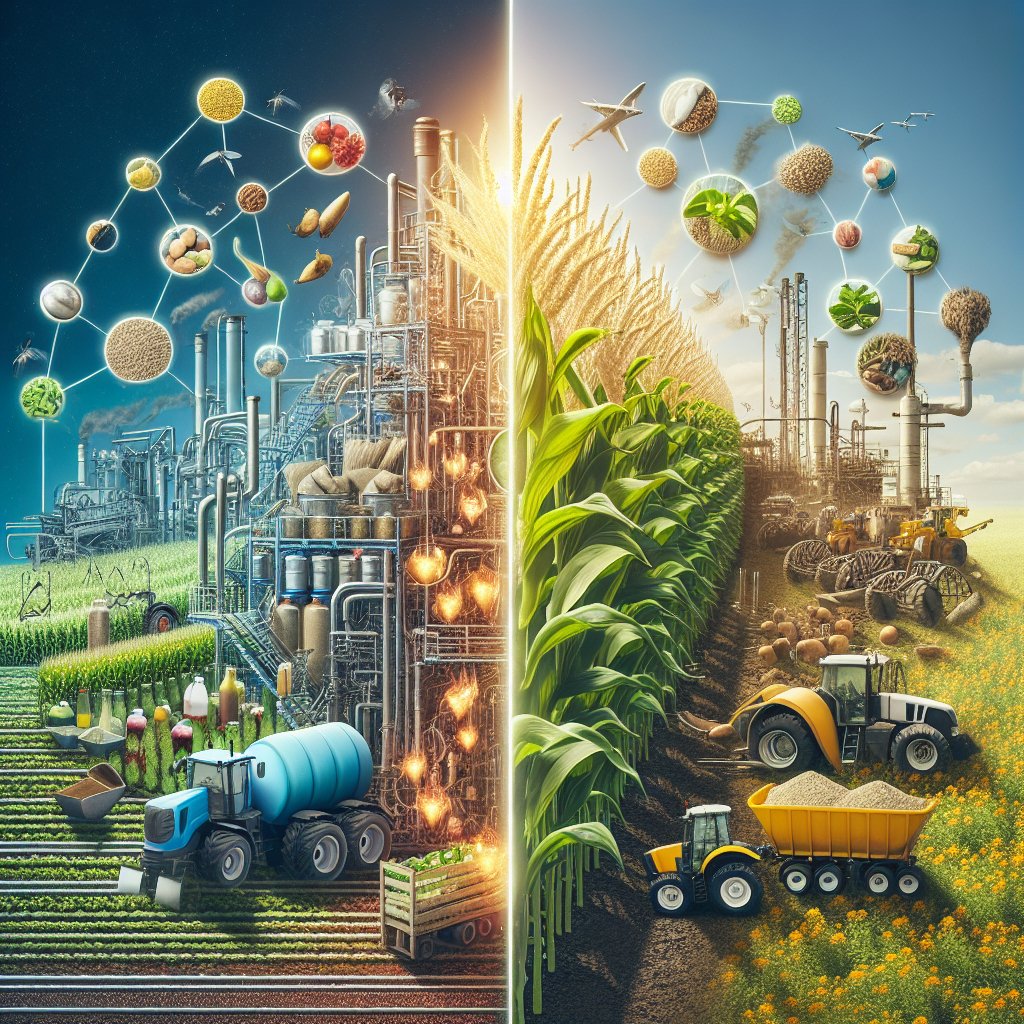Transitioning from conventional to organic farming is a significant step that requires careful planning, dedication, and a deep understanding of both agricultural practices. This shift not only involves changes in farming techniques but also a transformation in mindset and business strategy. As the demand for organic products continues to rise, more farmers are considering this transition to meet market needs and contribute to sustainable agriculture.
Understanding the Basics of Organic Farming
Organic farming is a method of agriculture that relies on natural processes and inputs to cultivate crops and raise livestock. Unlike conventional farming, which often uses synthetic fertilizers and pesticides, organic farming emphasizes the use of organic fertilizers, crop rotation, and biological pest control. The goal is to create a sustainable and environmentally friendly farming system that maintains soil health, conserves biodiversity, and reduces pollution.
One of the fundamental principles of organic farming is maintaining soil fertility through natural means. This involves using compost, green manure, and animal manure to enrich the soil. Crop rotation is another essential practice, helping to prevent soil depletion and control pests and diseases. By rotating different crops, farmers can break pest cycles and improve soil structure and fertility.
Organic farming also focuses on biodiversity. By encouraging a diverse range of plants and animals, organic farms can create a balanced ecosystem that supports natural pest control and pollination. This approach not only benefits the environment but also enhances the resilience of the farm to climate change and other external pressures.
Steps to Transition from Conventional to Organic Farming
The transition from conventional to organic farming is a multi-step process that requires careful planning and execution. Here are some key steps to consider:
1. Conduct a Farm Assessment
Before making any changes, it’s crucial to assess the current state of your farm. This includes evaluating soil health, existing crop and livestock systems, and available resources. Understanding the strengths and weaknesses of your farm will help you develop a tailored transition plan.
2. Develop a Transition Plan
Creating a comprehensive transition plan is essential for a successful shift to organic farming. This plan should outline the steps you need to take, the resources required, and the timeline for implementation. Consider factors such as soil preparation, crop selection, pest management, and marketing strategies.
3. Build Soil Health
Improving soil health is a cornerstone of organic farming. Start by incorporating organic matter into the soil through composting and cover cropping. These practices will enhance soil fertility, structure, and water retention, providing a strong foundation for your organic crops.
4. Implement Crop Rotation and Diversity
Introduce crop rotation and diversity into your farming system to improve soil health and reduce pest and disease pressure. Plan your crop rotations carefully, considering the nutrient needs and pest cycles of different crops. Incorporate a variety of crops, including legumes, to fix nitrogen in the soil naturally.
5. Manage Pests and Diseases Naturally
Organic farming relies on natural pest and disease management techniques. Use biological controls, such as beneficial insects and natural predators, to keep pest populations in check. Implement cultural practices, like intercropping and trap cropping, to deter pests and reduce disease incidence.
6. Transition Livestock Practices
If you have livestock, transitioning to organic practices involves changes in feed, housing, and health management. Provide organic feed and ensure that animals have access to pasture. Implement holistic health management practices, such as herbal remedies and homeopathy, to maintain animal welfare.
7. Obtain Organic Certification
To market your products as organic, you’ll need to obtain organic certification. This process involves meeting specific standards set by certifying bodies and undergoing regular inspections. Familiarize yourself with the certification requirements and maintain detailed records of your farming practices.
Challenges and Benefits of Organic Farming
Transitioning to organic farming comes with its own set of challenges and benefits. Understanding these can help you make informed decisions and prepare for the journey ahead.
Challenges
- Initial Costs: The transition to organic farming can involve significant upfront costs, such as purchasing organic seeds, inputs, and certification fees.
- Learning Curve: Adapting to organic farming practices requires new knowledge and skills. Farmers may need to invest time in training and education.
- Yield Variability: During the transition period, crop yields may fluctuate as the farm ecosystem adjusts to organic practices.
- Pest and Disease Management: Without synthetic pesticides, managing pests and diseases can be more challenging and may require innovative solutions.
Benefits
- Environmental Sustainability: Organic farming promotes biodiversity, soil health, and water conservation, contributing to a healthier planet.
- Market Opportunities: With growing consumer demand for organic products, farmers can access premium markets and potentially higher prices.
- Improved Soil Health: Organic practices enhance soil fertility and structure, leading to long-term productivity and resilience.
- Healthier Products: Organic farming produces food without synthetic chemicals, appealing to health-conscious consumers.
Conclusion
Transitioning from conventional to organic farming is a rewarding journey that requires commitment and perseverance. By understanding the principles of organic farming and carefully planning the transition process, farmers can successfully make the shift and enjoy the numerous benefits it offers. While challenges exist, the long-term advantages for the environment, farm productivity, and market opportunities make organic farming a viable and sustainable choice for the future.



